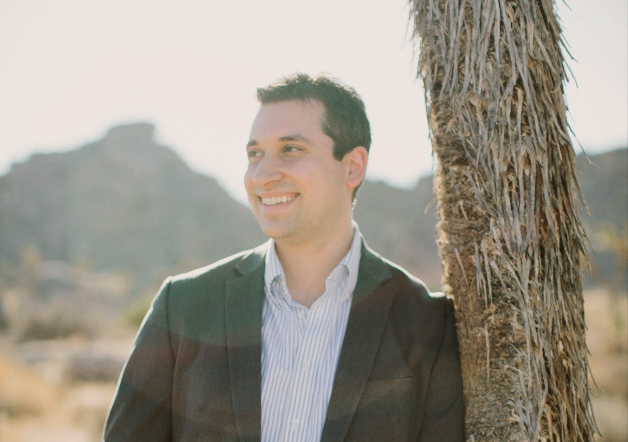Kay Kim (Class of 2021, Biomedical Science) sat down with John Razzouk, newly minted Assistant Professor of Economics and longtime teacher of UHNR 354 (Honors Community Involvement), the course during which students plan, execute, and evaluate a major, year-long project designed to make profound impacts upon a local community.
KK: What was your personal experience in the Honors Program. What did you learn, and what did you gain?
JR: The Honors Program for me is best summed up in my first moments as a La Sierra University student on day one of the Beginning to Seek course (UHNR 101) nearly twenty years ago. Dr. Paul Mallery walked into this classroom full of shy, nervous freshmen and boldly asked all of us: “Why are you here?” More than half of us immediately stood up, started gathering up our things, apologized, and prepared to leave the room. He laughed as he told us we were in the right place, and so began an hour-long discussion on why we were here at La Sierra University, what we expected to gain out of the experience, and what the purpose of education in the first place is all about.
Today, as a member of the faculty myself, I think about that discussion every single day when I first come in to work. Is the purpose of education at our university to be a sponge of knowledge and information, absorbing it from others and squeezing it out to be absorbed yet again by those privileged with the opportunity of a college education? Is it only something that can, at best, be passed on from one generation to the next? Or can we go further, seeking to use what we learn and taking action to create value and positively impacting the people and world around us? The very name of our university is rooted in and symbolized by mountains (sierra translated from Spanish to English as “hill”). What better illustration of the college experience than that of daily pushing and challenging ourselves to break through the perceived limits of our potential and prove the possible! It is with this philosophy that the Honors Program offers the experience of the Changing Communities and the Honors Community Involvement course sequence.
KK: How are the lessons learned in the Changing Communities course connected to what you teach in the Honors Community Involvement course? What do you want students to gain from the experience?
JR: In the Changing Communities course, students are challenged to consider their definition of “community,” and their understanding of how communities form, grow, change, and thrive or divide. How are communities impacted? How do we measure such impact? The readings, discussion, and cognitive dissonance created in the Changing Communities course experience are the perfect foundation for joining my Honors Community Involvement course, where we apply all of that knowledge through real, direct action in our community. In my class, you will take initiative and identify community-serving organizations with which to gain experience, you will push through to the other side of frustration and challenge in forming an effective team, identifying and communicating with stakeholders, and designing, implementing, and measuring the results of a project. You will conquer the difficulties of identifying and bridging gaps that prevent real people in our community from achieving their own potential. And during that journey, if you continue to push and climb beyond those once perceived limitations of being “just a student.” you will discover the true purpose of education.
Honors Community Involvement is not really a course that can be taught. I depend on all of the students in the class to work with me as partners in creating a unique, applicable, transformative experience. I have been involved in teaching this class for about twelve years now, and it has never been the same experience twice for me. The quality of the students, the foundation of previous course experience, and the passionate impatience we should all embrace in helping those around us to thrive: it’s a formula for us to create real impact in our community. It’s also a reminder to the rest of us that real, world-changing impact can start with even a simple question. So ask yourself today: why are you here?

